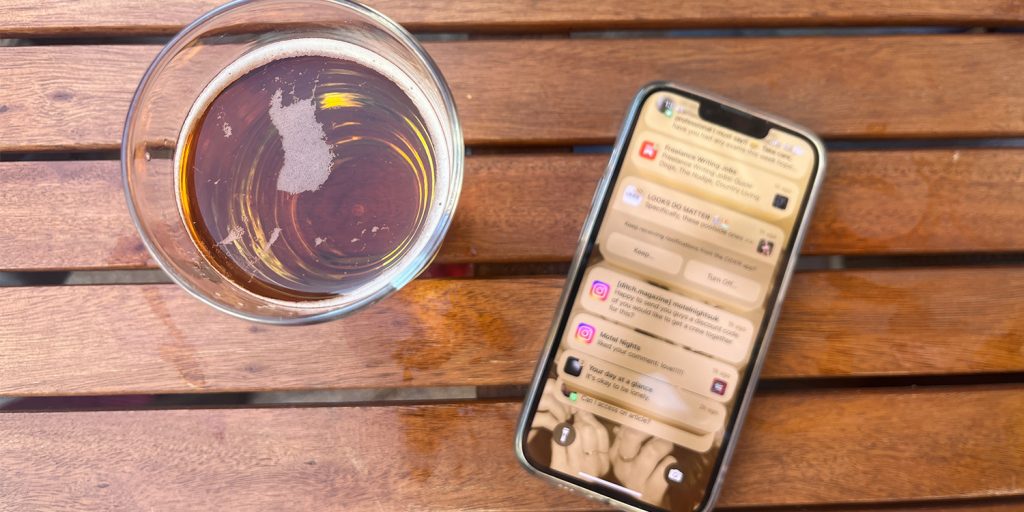Love is in the air… but so is wifi. For some, that’s way more interesting – welcome to the age of phubbing
You’re mid-conversation on a date, sharing something mildly interesting, when your potential new partner suddenly picks up their phone. A quick glance turns into a full scroll, and just like that, you’ve lost them. Congrats, you’ve been phubbed.
A blend of the words phone and snubbing, phubbing is the act of ignoring someone in favour of your phone. And, while it might just feel like a modern-day annoyance, research suggests it’s doing real damage to our relationships.
In fact, 52% of 18 to 29 year-olds in relationships say their partner is at least sometimes distracted by their phone when they’re trying to talk to them. Phubbing isn’t just an occasional bad habit; for many, it’s a recurring issue that’s quietly chipping away at real-life connections.
According to psychologist Dr Lalitaa Suglani, phubbing is when one partner prioritises their phone over their significant other, and this can create a sense of emotional disconnection. “Emotional intimacy thrives on feeling seen, heard, and valued, and phubbing disrupts this by creating a physical and psychological barrier in interactions,” she said.
This can create a problem for people with anxious attachment styles or past experiences of rejection from others. Dr Suglani says phubbing can trigger the fear of being ignored, feeling unimportant, or emotionally abandoned. Even if unintentional, the act of looking at a phone instead of engaging with a partner can be interpreted as emotional neglect, which leads to frustration, insecurity, or resentment.
If phubbing has created emotional distance in your relationship, Dr Suglani recommends addressing it with curiosity and vulnerability rather than blame. Instead of accusing a partner of being on their phone too much, she suggests using statements like: “I love our time together, but I sometimes feel disconnected when we’re both on our phones. Could we set aside some screen-free time?”

It’s clear phubbing is frustrating in any relationship, but what if it happens on a first date?
First impressions matter; nothing kills the vibe faster than someone constantly checking their phone instead of making eye contact and appreciating the effort you put in to get ready. First dates are hard enough, don’t make them more complicated by paying more attention to your phone than the person in front of you.
Will Davies, 22, experienced this firsthand when his date spent more time scrolling than talking. “I don’t expect undivided attention for hours, but if you can’t put your phone away for more than 30 minutes, why even bother meeting up?” he said. Unsurprisingly, there was no second date.
As casual phone-checking becomes more normalised, it’s easy to overlook how much it might affect real-life interactions. However, small changes, like being mindful of phone use, setting boundaries, and prioritising face-to-face connection can go a long way in strengthening relationships and helping you secure a second date.

